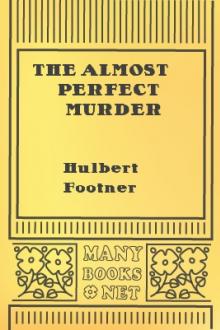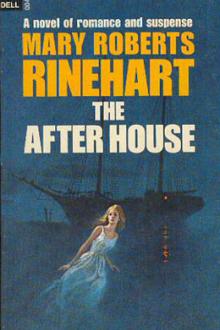Genre Mystery & Crime. Page - 18

to take it, if you please, as the saying of an ignorant man, when I express my opinion that such a book as ROBINSON CRUSOE never was written, and never will be written again. I have tried that book for years--generally in combination with a pipe of tobacco--and I have found it my friend in need in all the necessities of this mortal life. When my spirits are bad--ROBINSON CRUSOE. When I want advice--ROBINSON CRUSOE. In past times when my wife plagued me; in present times when I have had a drop too much--ROBINSON CRUSOE. I have worn out six stout ROBINSON CRUSOES with hard work in my service. On my lady's last birthday she gave me a seventh. I took a drop too much on the strength of it; and ROBINSON CRUSOE put me right again. Price four shillings and sixpence, bound in blue, with a picture into the bargain.
Still, this don't look much like starting the story of the Diamond--does it? I seem to be wandering off in search of Lord knows what, Lord knows where. We will take a new sheet of paper, if you pleas

" he exclaimed, very sharply.
I made a carefully calculated pause and then replied, choosing my words with deliberation: "It is the answer to your Excellency's question as to my opinion of the solution. If you have followed my formula, you have of course found the jewels. The Count was the thief."
"In God's name!" he cried, glancing round as though the very furniture must not hear such a word so applied.
"It was so obvious," I observed, with a carelessness more affected than real.
He sat in silence for some moments as he fingered the paper, and then striking a match burnt it with great deliberation, watching it jealously until every stroke of my writing was consumed.
"You say Charlotte has had this nearly a week?"
"The date was on it. I am always methodical," I replied, slowly. "I meant to prove to you that I can read things."
His eyes were even harder than before and his face very stern as he paused before replying with well-weighed significance:
"I fea

e case of a stranger. Do you imagine it would prevent me from doing my duty to so old a friend?"
Again I advanced, but he repulsed me with a look of furious anger.
"If you will stand there I will talk. If you do not you must leave the room."
I have so deep a respect for the extraordinary qualities of Holmes that I have always deferred to his wishes, even when I least understood them. But now all my professional instincts were aroused. Let him be my master elsewhere, I at least was his in a sick room.
"Holmes," said I, "you are not yourself. A sick man is but a child, and so I will treat you. Whether you like it or not, I will examine your symptoms and treat you for them."
He looked at me with venomous eyes.
"If I am to have a doctor whether I will or not, let me at least have someone in whom I have confidence," said he.
"Then you have none in me?"
"In your friendship, certainly. But facts are facts, Watson, and, after all, you are only a general practiti

was immediately carried into the house and laid upon the bed. The family physician was telephoned for. The powder marks around the wound could be seen by all. In his confusion and excitement, the butler felt that he ought to notify his master of what had happened before sending for the police. Nobody in the house knew where Mr. Whittall was dining that night, and the butler started telephoning around to his clubs, and to the houses of his most intimate friends in the endeavour to find him. He could not get any word of him. He was still at the telephone when Mr. Whittall returned home. This would be about eleven. Mr. Whittall's first act was to telephone to the local police station. He upbraided the butler for not having done so at once. A few minutes later the police were in the house.
Mrs. Whittall's own maid had identified the revolver as one belonging to her mistress. She had testified that she had seen nothing strange in the behaviour of her mistress before she left the house. So far as she could

this nervous little chap.
There was a tray of drinks on a table beside him, from which he filled himself a stiff whisky-and-soda. He drank it off in three gulps, and cracked the glass as he set it down.
'Pardon,' he said, 'I'm a bit rattled tonight. You see, I happen at this moment to be dead.'
I sat down in an armchair and lit my pipe.
'What does it feel like?' I asked. I was pretty certain that I had to deal with a madman.
A smile flickered over his drawn face. 'I'm not mad - yet. Say, Sir, I've been watching you, and I reckon you're a cool customer. I reckon, too, you're an honest man, and not afraid of playing a bold hand. I'm going to confide in you. I need help worse than any man ever needed it, and I want to know if I can count you in.'
'Get on with your yarn,' I said, 'and I'll tell you.'
He seemed to brace himself for a great effort, and then started on the queerest rigmarole. I didn't get hold of it at first, and I had to stop and ask him questions. But here is the gis

s that there is some mischief afoot."
"If you said 'hope' instead of 'fear,' it would be nearer the truth, I'm thinking, Mr. Holmes," the inspector answered, with a knowing grin. "Well, maybe a wee nip would keep out the raw morning chill. No, I won't smoke, I thank you. I'll have to be pushing on my way; for the early hours of a case are the precious ones, as no man knows better than your own self. But--but--"
The inspector had stopped suddenly, and was staring with a look of absolute amazement at a paper upon the table. It was the sheet upon which I had scrawled the enigmatic message.
"Douglas!" he stammered. "Birlstone! What's this, Mr. Holmes? Man, it's witchcraft! Where in the name of all that is wonderful did you get those names?"
"It is a cipher that Dr. Watson and I have had occasion to solve. But why--what's amiss with the names?"
The inspector looked from one to the other of us in dazed astonishment. "Just this," said he, "that Mr. Douglas of Birlstone Manor House

the summer with unimpaired cheerfulness, confiding to me that he secured his luncheons free at the soda counter. He came frequently to see me, bringing always a pocketful of chewing gum, which he assured me was excellent to allay the gnawings of hunger, and later, as my condition warranted it, small bags of gum-drops and other pharmacy confections.
McWhirter it was who got me my berth on the Ella. It must have been about the 20th of July, for the Ella sailed on the 28th. I was strong enough to leave the hospital, but not yet physically able for any prolonged exertion. McWhirter, who was short and stout, had been alternately flirting with the nurse, as she moved in and out preparing my room for the night, and sizing me up through narrowed eyes.
"No," he said, evidently following a private line of thought; "you don't belong behind a counter, Leslie. I'm darned if I think you belong in the medical profession, either. The British army'd suit you."
"The - what?"
"You know - Kipling ide

ss Cushing? We may take it that the sender of the packet is the man whom we want. But he must have some strong reason for sending Miss Cushing this packet. What reason then? It must have been to tell her that the deed was done! or to pain her, perhaps. But in that case she knows who it is. Does she know? I doubt it. If she knew, why should she call the police in? She might have buried the ears, and no one would have been the wiser. That is what she would have done if she had wished to shield the criminal. But if she does not wish to shield him she would give his name. There is a tangle here which needs straightening to." He had been talking in a high, quick voice, staring blankly up over the garden fence, but now he sprang briskly to his feet and walked towards the house.
"I have a few questions to ask Miss Cushing," said he.
"In that case I may leave you here," said Lestrade, "for I have another small business on hand. I think that I have nothing further to learn from Miss Cushing. You will fin

marks upon the narrow strip of grass which separated the house from the road. Apparently, therefore, it was the young man himself who had fastened the door. But how did he come by his death? No one could have climbed up to the window without leaving traces. Suppose a man had fired through the window, he would indeed be a remarkable shot who could with a revolver inflict so deadly a wound. Again, Park Lane is a frequented thoroughfare; there is a cab stand within a hundred yards of the house. No one had heard a shot. And yet there was the dead man and there the revolver bullet, which had mushroomed out, as soft-nosed bullets will, and so inflicted a wound which must have caused instantaneous death. Such were the circumstances of the Park Lane Mystery, which were further complicated by entire absence of motive, since, as I have said, young Adair was not known to have any enemy, and no attempt had been made to remove the money or valuables in the room.
All day I turned these facts over in my mind, endeavo

What could be more hopelessly prosaic and material? What is the use of having powers, doctor, when one has no field upon which to exert them? Crime is commonplace, existence is commonplace, and no qualities save those which are commonplace have any function upon earth."
I had opened my mouth to reply to this tirade, when with a crisp knock our landlady entered, bearing a card upon the brass salver.
"A young lady for you, sir," she said, addressing my companion.
"Miss Mary Morstan," he read. "Hum! I have no recollection of the name. Ask the young lady to step up, Mrs. Hudson. Don't go, doctor. I should prefer that you remain."
Chapter II
The Statement of the Case
Miss Morstan entered the room with a firm step and an outward composure of manner. She was a blonde young lady, small, dainty, well gloved, and dressed in the most perfect taste. There was, however, a plainness and simplicity about her costume which bore with it a